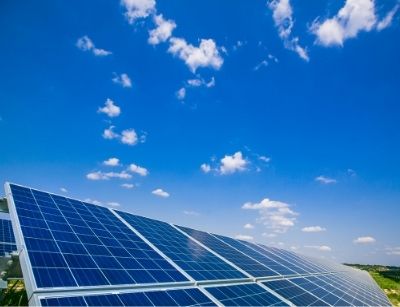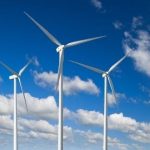
Alternative Energy - What Is It and How Does It Help the Planet?
Alternative energy isn’t exactly a new development - it’s been around in many forms for decades - but many people aren’t familiar with how it works or why it’s so important for the future of the planet. As the name suggests, alternative energy is derived from sources and methods other than fossil fuels or other environmentally costly processes. It is often called renewable energy because it is generated from sources that naturally replenish themselves indefinitely.
Many corporations and industry leaders are augmenting their energy usage with renewable energy sources to reduce their carbon footprint. Because alternative energy is usually seen on such a large scale and the technology is advancing so rapidly, many people feel that it is out of their reach. But thanks to recent innovations, there are several viable options for homeowners who want to do their part and rely more heavily on clean energy.
Solar Energy

Roof-mounted solar panels have been around for decades, but the technology has only improved since the early iterations. Solar energy systems harness the power of the sun by converting sunlight into electrical current. Many of these systems use batteries to store electricity for use on overcast days or during power outages. The average household may not be able to run solely on solar power, but it can drastically decrease reliance on the national power grid and save thousands on electricity.
For those who aren’t keen on putting a large and unsightly solar panel array on their roof, many companies are manufacturing discreet and durable solar shingles designed to blend seamlessly with the home’s aesthetic.
Wind Power
Most people have seen at least a few of the towering wind turbines used in most states across the country, but many homeowners are shocked to learn that they can have one generating power for them in their own backyard.
The principle of wind power is quite simple - as the wind turns the turbine blades, the rotor spins a small generator inside the turbine housing, which produces electricity. How much power is generated will naturally vary by day and by season - some are breezier than others - but the average energy savings are significant. Some local or state codes prohibit the use of residential wind turbines, so it’s a good idea to check the local laws before setting out to install one.
More Alternative Energy Sources
Though wind and solar are the most widely known forms of alternative energy, other systems are available for residential use. Micro-hydropower systems operate by the same principle as wind turbines but use a type of waterwheel installed in a stream or river to spin the generator.
Geothermal heat pumps draw energy from underground heat and use it to heat and cool a home. These can be up to 50% more energy-efficient than traditional HVAC systems, produce virtually no greenhouse gas output, and be used almost anywhere. The initial investment in these forms of renewable energy may be fairly steep, but they pay back massive dividends, both in dollars saved and the positive impact on the planet.
About Gillece Services
Gillece Services has been handling the HVAC, plumbing, and electrical needs of Pittsburgh, PA, since 1980. Their licensed and background-checked professionals are standing by to tackle any problem 24/7, 365 days a year. Gillece offers up-front pricing, financing, and a rewarding membership plan.
Distribution Links +
- panhandle.newschannelnebraska.com
- metro.newschannelnebraska.com
- wrde.com
- midplains.newschannelnebraska.com
- wicz.com
- wboc.com
- ktvn.com
- snntv.com
- rfdtv.com
- htv10.tv
- central.newschannelnebraska.com
- southeast.newschannelnebraska.com
- northeast.newschannelnebraska.com
- plattevalley.newschannelnebraska.com
- rivercountry.newschannelnebraska.com
- wpgxfox28.com
- lifestyle.mykmlk.com
- wtnzfox43.com
- lifestyle.3wzfm.com
- lifestyle.bigtalkerradio.com
- lifestyle.rewindmymusic.com
- lifestyle.koltcountry.com
- lifestyle.967thewolf.net
- lifestyle.southernsportstoday.com
- lifestyle.thepodcastpark.com
- lifestyle.680thefan.com
- lifestyle.xtra1063.com
- lifestyle.953hlf.com
- lifestyle.rewind1019.com
- lifestyle.us983.com
- lifestyle.countrylegends1059.com
- lifestyle.967wshv.com
- lifestyle.1045thedan.com









